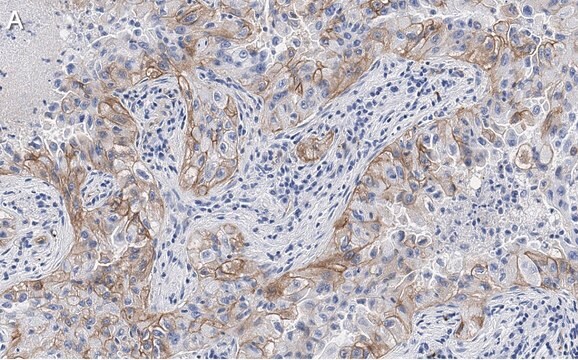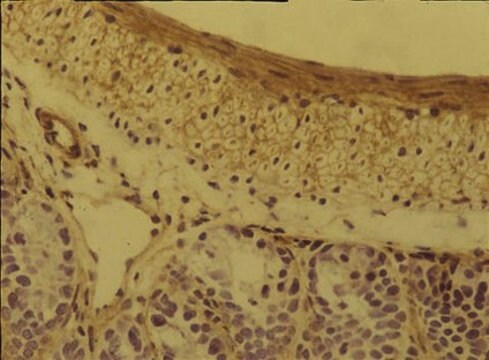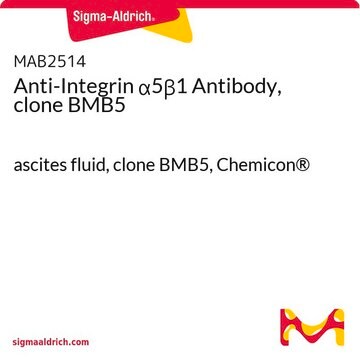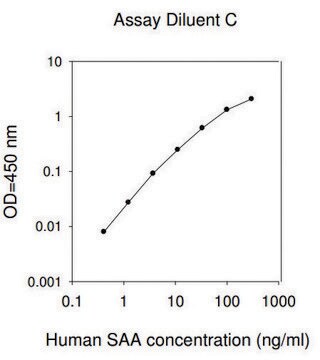MAB1976F
Anti-Integrin αVβ3 Antibody, clone LM609, FITC conjugated
clone LM609, Chemicon®, from mouse
Synonym(s):
Vitronectin Receptor, CD51/CD61
About This Item
Recommended Products
biological source
mouse
Quality Level
conjugate
FITC conjugate
antibody form
purified antibody
antibody product type
primary antibodies
clone
LM609, monoclonal
species reactivity
canine, human, monkey, rabbit, pig, bovine, avian, chicken
should not react with
rat, mouse
manufacturer/tradename
Chemicon®
technique(s)
flow cytometry: suitable
immunohistochemistry: suitable
isotype
IgG1
suitability
not suitable for immunohistochemistry (Paraffin)
NCBI accession no.
UniProt accession no.
shipped in
wet ice
target post-translational modification
unmodified
Gene Information
human ... ITGAV(3685)
Related Categories
General description
Specificity
Immunogen
Application
Immunofluorescence: 5-10 μg/mL for staining of bFGF-treated 6 mm cryosections of chick chorioallantoic membrane fixed with acetone (Brooks, 1994). LM609 is also effective on 4% paraformaldehyde fixed, frozen tissues and cells. However it is not effective for immunohistochemical staining of paraffin-embedded tissue sections.
Optimal working dilutions and protocols must be determined by end user.
Cell Structure
Integrins
Physical form
Storage and Stability
Analysis Note
POSITIVE CONTROL: Human myeloma cell lines M21 and MoalphaV (Chen, 1995).
NEGATIVE CONTROL: Mo cells (this cell line was derived from M21 but does not express integrin alphaV
Chen, 1995).
Other Notes
Legal Information
Disclaimer
Not finding the right product?
Try our Product Selector Tool.
Storage Class
12 - Non Combustible Liquids
wgk_germany
WGK 2
flash_point_f
Not applicable
flash_point_c
Not applicable
Certificates of Analysis (COA)
Search for Certificates of Analysis (COA) by entering the products Lot/Batch Number. Lot and Batch Numbers can be found on a product’s label following the words ‘Lot’ or ‘Batch’.
Already Own This Product?
Find documentation for the products that you have recently purchased in the Document Library.
Our team of scientists has experience in all areas of research including Life Science, Material Science, Chemical Synthesis, Chromatography, Analytical and many others.
Contact Technical Service





